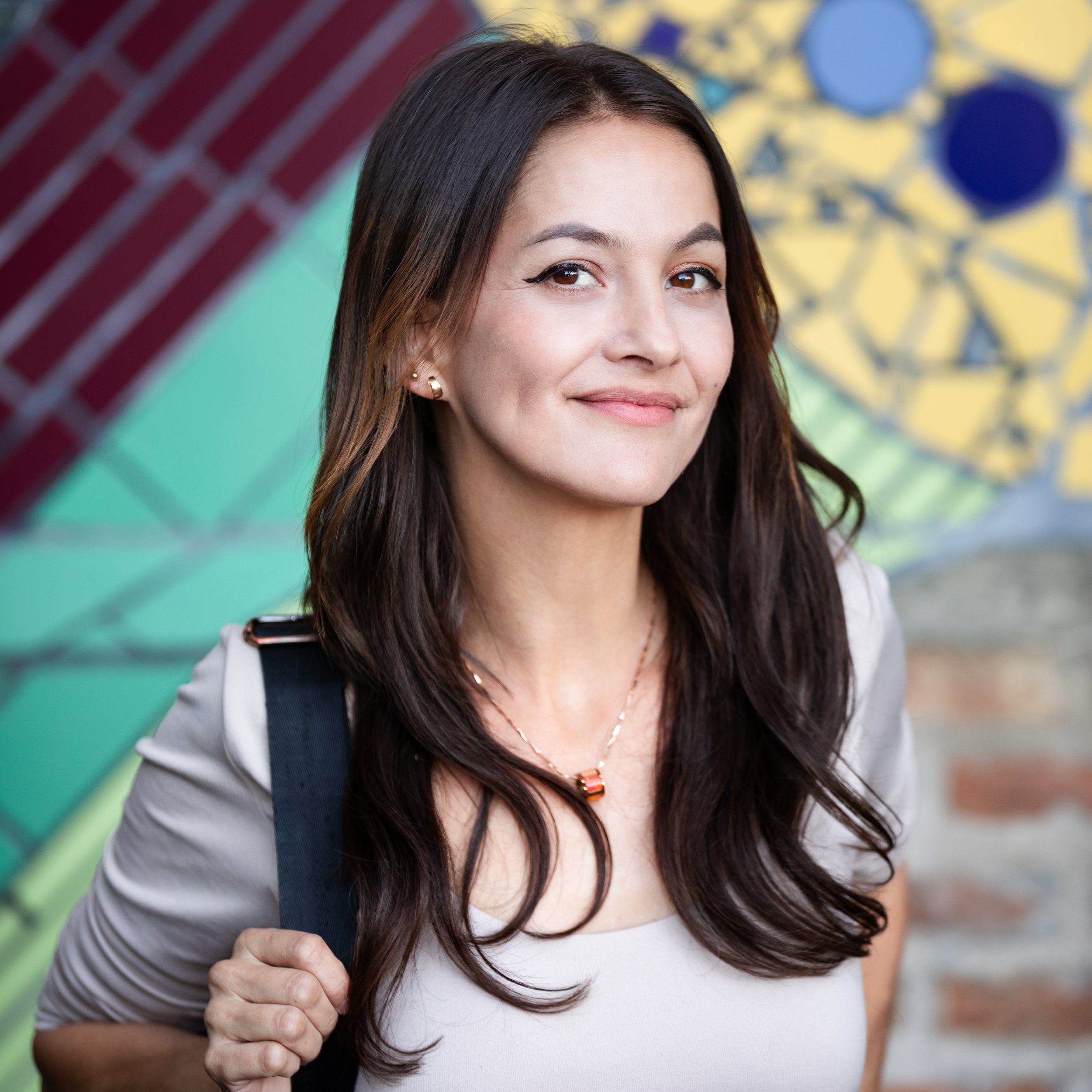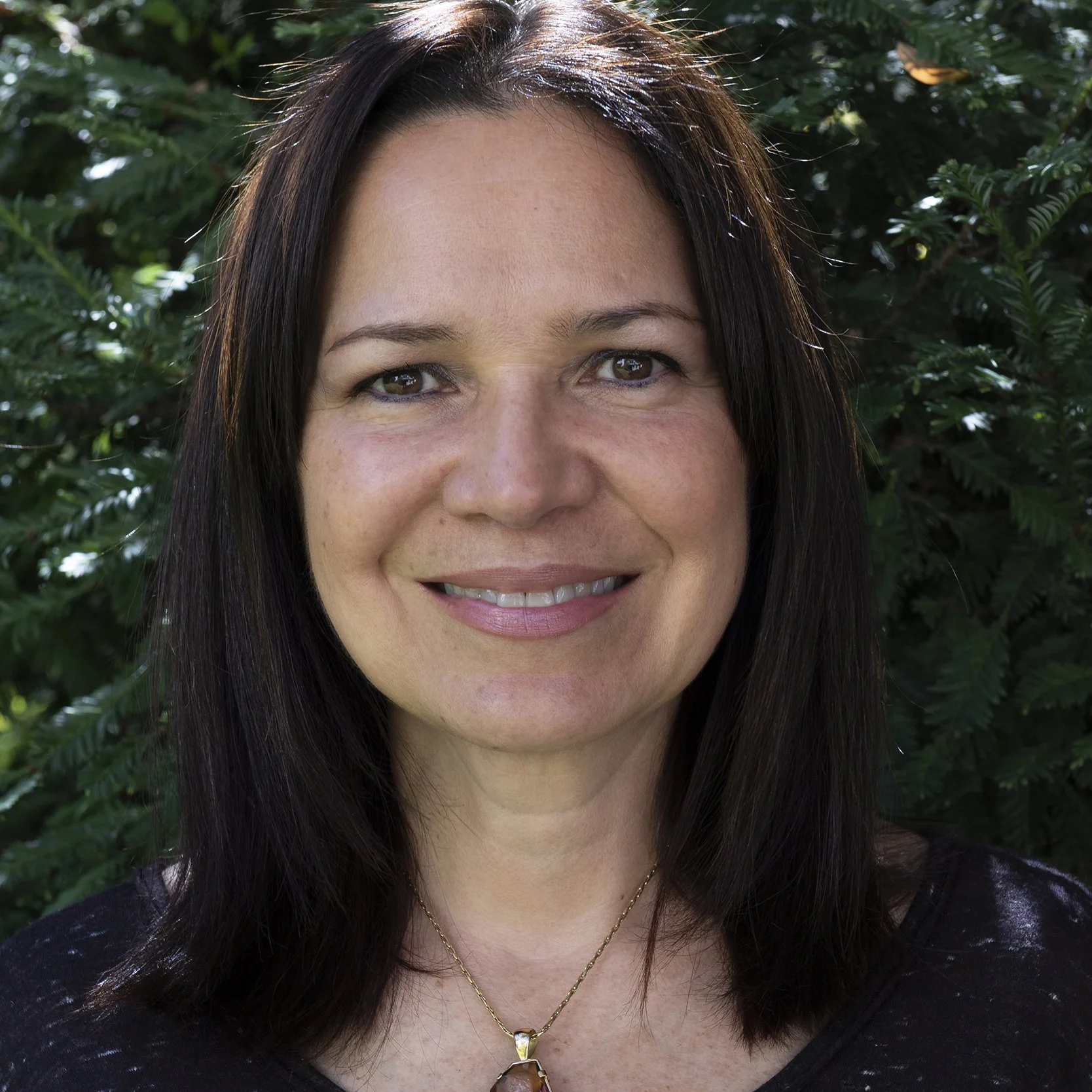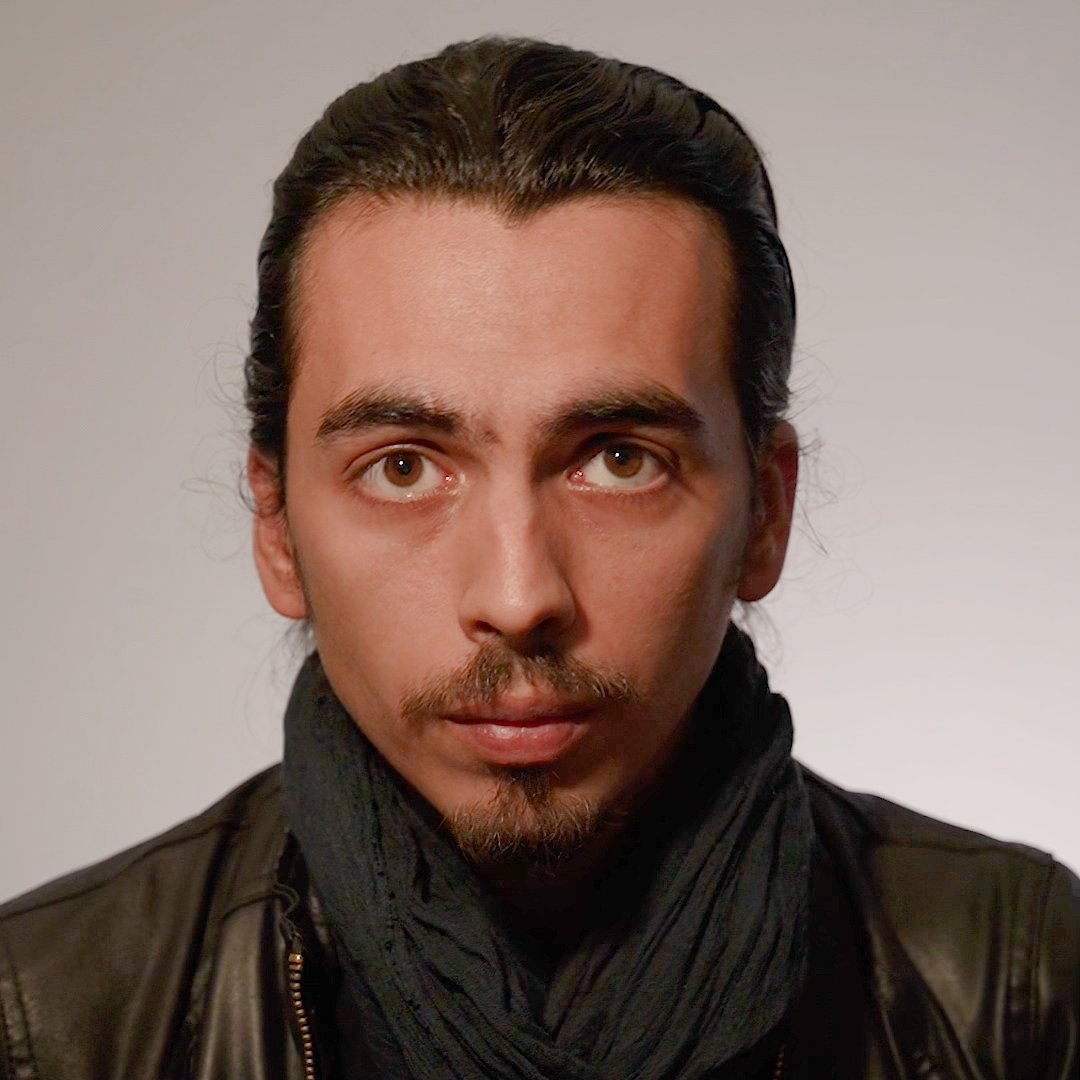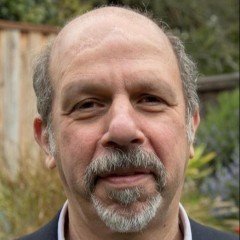In Chicago, Immigrants Who Fled Violence and War Struggle With Their Mental Health
Maria Suares, a Venezuelan immigrant in the United States, found a home in Chicago after fleeing violence in her country. Photo by Olga L. Jaramillo for palabra/MindSite News
One of the country's most diverse cities is helping migrants build a new life.
Editor’s Note: Silent Battles is a new reporting project focusing on the mental health of immigrant, refugee and asylum communities in the U.S. We begin in Chicago, a city founded by a Haitian immigrant that has the fourth-largest immigrant population in the country. The series is a collaboration between the Chicago bureau of MindSite News and palabra, a multimedia platform from the National Association of Hispanic Journalists. It is made possible with funding from the Field Foundation of Illinois.
Haz clic aquí para leer este reportaje en español.
Maria Suares was sweeping her front patio at her home in Maracay, Venezuela, around 8 am in March of 2018 when she heard a loud knock on her door. She opened it and found three men on motorcycles with guns pointed at her.
The men forced her onto a bus along with other captives being taken to march at a pro-government political rally in favor of Nicolás Maduro, but she eventually managed to escape and hide in an auto repair shop before returning home. The incident was so stressful, she said, that she suffered a stroke and spent almost two months recovering in a hospital. She is being identified by only parts of her name in order to protect her from legal action.
When Suares, then 40, finally recovered, she knew she had to get her family out of Venezuela so they fled to neighboring Colombia. But after street gangs began extorting them in Bogotá, the family started a perilous journey to the U.S. in August 2023. Together with their three daughters and 9-year-old twin grandchildren, Suares and her husband joined a caravan with thousands of migrants headed to Medellín, then Acandí where they got on a boat to the Darién Gap — a treacherous stretch of jungle between Colombia and Panama.
Maria Suares crossed the Darién Gap with her family to reach the U.S. and seek asylum. She temporarily relocated to Washington, D.C., but hopes to return to Chicago, where she found a sense of home. Photo by Olga L. Jaramillo for palabra/MindSite News
The family trekked across the Darién Gap for six days, surviving without food for four of them. The jungle was unforgiving, with swollen rivers, crocodiles, deadly snakes and the lurking threat of sexual violence. “My children were very sick, especially my daughter, who is epileptic." Suares recalled. “I’m diabetic, and the stress and hunger nearly killed me.” Suares said she nearly drowned twice.
After almost a month, they made it to the Texas border and sought asylum. One day later, Suares, her husband and youngest daughter were put on a bus to Chicago. They arrived in September 2023 — part of a wave of some 49,000 migrants that Texas Gov. Greg Abbott has sent to Chicago, mostly by bus, since August 31, 2022. Most, like Suares, come from Venezuela. Others arrive from different parts of South and Central America.
Suares and her family spent their first two weeks sleeping on the floor of the District 2 police station on the South Side, one of many overcrowded police stations and shelters where the city placed thousands of new arrivals. The city currently accommodates 5,454 migrants in 17 shelters and is spending $150 million to provide housing, food, and care for new arrivals this year, as it did in 2023.
More than 40 asylum seekers found refuge at the Chicago Police District 20 station in Lincoln Square on May 8, 2023. Police stations saw thousands of people in rotation before shelters became the city’s main aid strategy later in the year. Photo by Sebastián Hidalgo
Eventually, the family moved to an apartment, but tragedy struck once more when their building caught fire. “We lost everything,” Suares said. “We left barefoot, in our pajamas.” They were relocated to a temporary shelter by the Red Cross.
Trauma is almost universal for new arrivals, said psychologist Kiara Álvarez, an assistant professor at the Johns Hopkins Bloomberg School of Public Health, whose research focuses on the mental health of immigrants. The city of Chicago and a network of community-based organizations have been working to address both the material and psychological needs of the newcomers — but the task is daunting.
Many are under enormous stress as a result of the violent persecution that caused them to flee and the traumas they experienced during their journeys, Álvarez said. Most are in survival mode, focused on finding work and housing and disconnected from support systems.
Maria Suares struggles with the trauma of her harrowing journey to seek asylum in the U.S. Photo by Olga L. Jaramillo for palabra/MindSite News
Though many migrants suffer from post-traumatic stress disorder and depression — usually undiagnosed — it can be nearly impossible for them to get services or treatment for their trauma, she said. And some also avoid talking about mental health issues because of shame, stigma or cultural barriers. Still, she said, trauma has a way of rising to the surface.
“They start having bad dreams. They start having bad sleep – nightmares, stomach aches, feelings of being nervous,” Álvarez explained.
Ukrainian immigrant Darina Semenets can testify to that.
She and her husband were vacationing in Egypt in February 2022, when they found out that Russia had invaded Ukraine. They flew to Poland and stayed there for eight months until a friend in Chicago sponsored them through the Uniting for Ukraine program. In October 2022, they settled in Ukrainian Village, a Chicago neighborhood that for decades has had a large Ukrainian community.
St. Nicholas Ukrainian Catholic Cathedral in Ukrainian Village, Chicago. Photo by Sebastián Hidalgo for palabra/MindSite News
In Chicago, Semenets works at an association assisting newly arrived Ukrainians and organizing protests and community events in support of her homeland. She feels guilt for staying in the U.S. and “not doing enough” for her country while it’s under siege — especially since their parents remain in Ukraine, though their homes have been hit by Russian missiles and Semenets’ father suffered a concussion.
“I will never get back the time to be with my family,” she said.
Support the voices of independent journalists.Until Dec. 31, your donations will be matched dollar-for-dollar. 
|
Semenets is one of an estimated 30,000 Ukrainians who have made their way to Chicago since Russia invaded Ukraine. The newcomers from Ukraine, Venezuela and Central America join established immigrant communities in the city, including one of the largest Mexican populations in the U.S. centered in neighborhoods like La Villita (Little Village), where street vendors on La 26 — 26th Street — sell elotes, chicharrones, and tamales, and Pilsen, where vibrant murals tell the stories of the community’s history, immigration and culture — as well as ongoing gentrification.
Adding to the city’s diversity are people from China, India, Poland, the Philippines, West Africa, Haiti and numerous other countries — an estimated 1.7 million immigrants altogether, many fleeing political violence at home.
Many of them also face wrenching turmoil, anxiety and stress in their new lives in the United States.
The welcoming arch along the main shopping strip in La Villita – Little Village – in Chicago. Photo by Sebastián Hidalgo for palabra/MindSite News
Chicago, Venezuela, and Mexico flags on display along La Villita’s main shopping strip, 26th Street. Photo by Sebastián Hidalgo for palabra/MindSite News
For Suares, who took her family temporarily to Washington, D.C. after the fire to squeeze into an apartment with a relative, the anxiety of being displaced has fused with her worries about her asylum application. With help from a legal aid volunteer provided by a Chicago nonprofit, she submitted it in mid-September but it may take up to five years to resolve.
“Without papers, you can’t work, and that also overwhelms us a lot,” she said. It is hard, she said, not to feel depressed.
And all of that compounds her existing health problems — hypertension, diabetes and chronic pain.
“I had a bunch of pains in my body, my legs,” she said. “As a consequence of everything I went through, I imagine, all the efforts I made, my body was damaged.”
In Washington, Suares said, she has had a hard time getting her medical visits covered — one reason she wants to go back to Illinois. In both places, asylum seekers are theoretically eligible for health services covered through the Medicaid program — if they can find their way through the bureaucracy.
Maria Suares has suffered pain due to the stress she endured while seeking asylum with her family. Photo by Olga L. Jaramillo for palabra/MindSite News
“Current immigration policies erode connections, leaving immigrants isolated from supportive communities,” said Kiara Álvarez, the Johns Hopkins psychologist. “Fear of immigration enforcement further prevents them from accessing help, deepening their isolation and its negative impact on mental health. Having citizenship, permanent status and full rights improves people’s mental health.”
To address at least some of these challenges, the Coalition for Immigrant Mental Health (CIMH) in Chicago has partnered with the city’s Department of Public Health and the Illinois Department of Human Services to create a mental health plan for asylum-seekers.
The initiative, Reimagining Mental Health Supports for Migrant Arrivals in Chicago, trains shelter workers and other front-line staff in trauma-informed care — an approach that recognizes the destructive impact of trauma and integrates practices to avoid re-traumatizing patients and staff members, who may have their own experiences with direct or secondary trauma. Providers also learn tips and practices they can share with migrants to improve their emotional wellness. So far, more than 500 service providers have been trained in these techniques.
Glohan Choi, 32, is a Korean immigrant without documents who has been living in the U.S. since the age of 4. Today, he is a community organizer with the HANA Center, a Chicago-based immigrant justice organization, where he advocates for the rights of Korean, Asian and multi-ethnic immigrant communities.
Choi is deeply worried about his family’s future, agonized about how he’ll be able to care for his aging parents and support his disabled sister — issues that are exacerbated by their undocumented status.
“There are all these big problems,” he said. “I feel anxiety about my family. I worry about my parents’ retirement plan — they don’t have one. My parents are almost 70 years old, they’re working labor-intensive jobs, and their bodies will only sustain that for a very limited amount of time moving forward.”
Glohan Choi with his parents at a martial arts class he attended as a child. Photo courtesy of Glohan Choi
Meanwhile, Maria Suares and her family continue to navigate a new life in Chicago and Washington, D.C. — and struggle with the trauma of their harrowing journey to a new and uncertain future. She had wanted to do everything by the book, but fate intervened.
She originally tried to apply for asylum from Colombia after she fled there from Venezuela. She attended an interview with U.S. immigration in 2022 and completed all the paperwork, but the process would have excluded her older daughters from going to the United States with her.
This was alarming because some “malandros” — young street criminals — had threatened Suares and her family with their safety during an attempted shakedown while she was selling clothes, coffee and other hot drinks on the streets of Bogotá.
The malandros held up pictures of Suares' daughters and the home where they were living. “They would say: ‘If you don’t pay this, we know where they are,’” Suares recalled. As the threats continued, she felt they had no choice but to flee together to the U.S.
Maria Suares escaped violence in Venezuela and now suffers from stress as she navigates life in the U.S. Photo by Olga L. Jaramillo for palabra/MindSite News
After crossing all of Central America, the family continued their journey into Mexico, facing extortion from gangs and authorities along the way. As the danger mounted, there was another round of horrors in store: They now needed to travel on the freight train known as La Bestia (The Beast) or el tren de la muerte (death train), which gained its nicknames from the horrific accidents that happen when migrants fall off the tops of cars.
They spent four days inside the packed freight cars of La Bestia, enduring heat, dehydration and hunger. But when they went to take the final leg of the journey to Piedras Negras at the U.S.-Mexican border, the train was full, so some members of the family had to ride on top of it for 17 hours.
“We tied ourselves there with bedsheets,” Suares said. She placed the bread and water people offered them in a small hole on top. “The sun was terrible. With the same bed sheets, we covered ourselves from the sun.”
At the border in El Paso, after collecting data and assessing their status, immigration agents asked what city they wanted to go to. Suares chose Chicago because she had heard from others that the city “was receiving migrants without a problem.” They ate and showered before boarding a bus for a ride of almost 24 hours.
In Chicago, they stayed in the police station for nearly two weeks, until staff members moved the family to one of the downtown migrant shelters set up by the city due to her daughter’s medical condition. They stayed there for two months before being given temporary housing assistance at an apartment in Roseland, a community on Chicago’s far South Side.
A crowd of asylum seekers from Venezuela, Colombia, and Ecuador receive donations outside the 12th District police station in Pilsen on Sept. 29, 2024. The station houses families with children suffering from respiratory issues. Photo by Sebastián Hidalgo
“People came and gave us sheets, clothes, because we arrived with nothing,” she recalls. Then came the fire that forced them to evacuate their apartment and relocate to Washington.
Suares is thankful for the support she received from the city, particularly for the apartment they lived in until the building burned down.
“They helped me, they gave me six months of rent,” she said. But now, as the family squeezes in with family in Washington, she feels like she’s starting all over again.
“Every dollar we get is a dollar we have to save,” Suares said. “We have to limit ourselves a lot, buy the necessary, only the necessary, because we know that we have to pay rent, we know that we have to have a roof to live under.”
Maria Suares prepares food in her kitchen, which she sells outside her apartment in the evenings on weekdays. Photo by Olga L. Jaramillo for palabra/MindSite News
Finding work is one of the family’s greatest stresses. Without legal documents, her husband takes whatever odd jobs he can find, while Suares, like other desperate migrants, sells small items like candy, food or bottled water on city streets to make ends meet.
“It’s hard because we want to work, but without papers, it’s almost impossible to find jobs,” she explained. “We don’t want to rely on government assistance. We just want the opportunity to work.”
Suares has never received counseling or talked to a clinical professional about her mental health since she’s been in the U.S. but she thinks it would be helpful. She is increasingly aware of the burden that stress is placing on her and her family.
“I know we all have our own problems and help is always good. And talking about problems has always helped,” she said. “Truly, it is the Lord that keeps us on our feet, but it has not been easy. And yes, we have been in a strong state of depression. Sometimes my children get depressed. Sometimes we cry, but sometimes we laugh.”
—
Alma Campos is an award-winning bilingual journalist in Chicago and is passionate about telling stories of immigrants in the U.S. Born in Mexico, her path led her from Azusa, California, to Chicago’s South Side. Her work dives into the immigrant experience, capturing stories across a range of topics from mental health and labor to community resilience. She contributes to The Guardian, is a senior editor at South Side Weekly, and leads reporting on the intersection of immigration and mental health for the Chicago bureau of MindSite News. Her work has also appeared in WTTW, Crain’s Chicago Business and Univision. @alma_campos
Olga L. Jaramillo, born in Colombia, is an independent visual storyteller based in the Washington D.C., metropolitan area. With a background in economics, she transitioned into photography, bringing her social awareness and experience in Latin American socioeconomic development into her visual work. Through photography, short films, and text, she explores the intricate relationships between identity, culture, and migration. Olga’s most recent work focuses on the intergenerational impact of migration on the families of migrant mothers from Central America. Her multimedia documentary project "Dos Mundos," begun in 2019, was awarded the Women Photojournalists of Washington's inaugural Butterfly Grant in 2024. @olgajarsa
Sebastián Hidalgo is a photojournalist and investigative reporter in Chicago, covering the intersection of low-wage labor and policing. @sebastianhidalgo_photo
Rob Waters is an award-winning health and mental health journalist and the founding editor of MindSite News. He has worked as a staff reporter or editor at Bloomberg News, Time Inc. Health and the Psychotherapy Networker and was a contributing writer to Health Affairs. His articles have also appeared in the Washington Post, the Los Angeles Times, the San Francisco Chronicle, Kaiser Health News, STAT, the Atlantic.com, Mother Jones and many other outlets. @robwaters001
Diana Hembree is co-founding editor of MindSite News. She is an award-winning journalist and editor who worked as a senior editor for Time Inc. Health, as news editor of the Center for Investigative Reporting, and as editor in chief of a health and medical startup. She has written for Forbes.com, Columbia Journalism Review, Southern Exposure, and many other outlets and served as an associate producer of the PBS Frontline documentary "The Great American Bailout." She has a BA in English literature and an MS in sustainable food systems. @legacyreporter




















